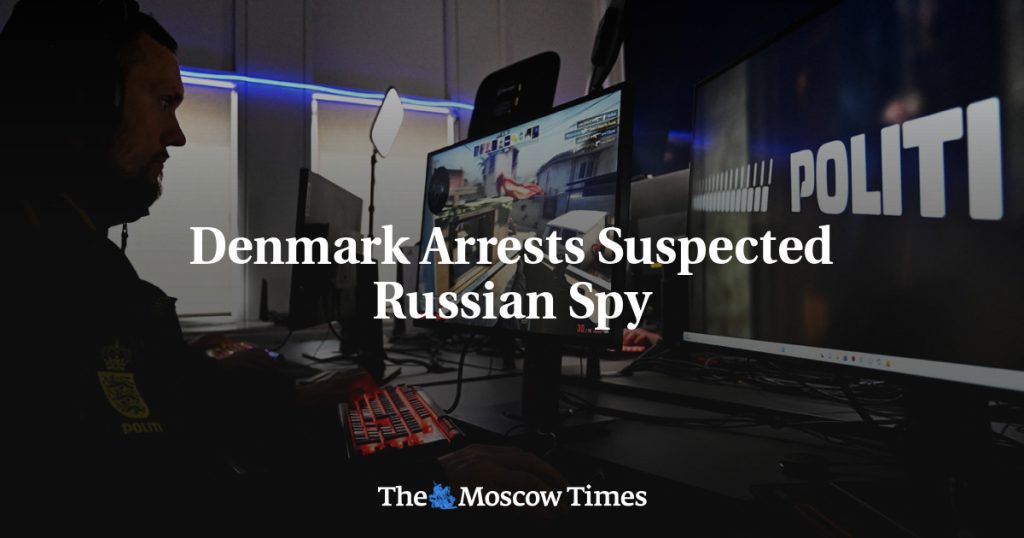A Russian citizen was arrested in Denmark for suspected espionage, with reports suggesting that it was a woman well-known in the Russian diaspora. The Danish Security and Intelligence Service confirmed the arrest, stating that the individual was apprehended south of Copenhagen and was believed to be facilitating a foreign intelligence service’s activities in Denmark. While the person was expected to be released following questioning, the case remains under investigation, and no further comments have been provided by PET. It was emphasized that the arrest was not connected to the recent European Parliament elections but was linked to media reports concerning a Russian sovereign wealth fund called Pravfond. This fund, established by the Russian authorities, is suspected of funding disinformation projects, as revealed by leaked documents obtained by Danish public broadcaster DR and other European media outlets.
The arrest of the Russian national in Denmark has raised concerns about possible foreign intelligence activities taking place within the country, particularly related to information warfare and disinformation campaigns. The case sheds light on the ongoing tensions between Russia and Western countries regarding defense and security issues, as well as concerns about Russian interference in democratic processes. With the increasing digitization of communication and information dissemination, the threat of cyber espionage and influence operations has become a major focus for intelligence agencies worldwide. The arrest serves as a reminder of the need for vigilance and robust counterintelligence measures to protect national security and combat attempts to manipulate public opinion through misinformation and propaganda.
The reports about the Russian sovereign wealth fund Pravfond highlight suspicions of its involvement in financing disinformation projects, which could have far-reaching implications for geopolitical relations and public discourse. The leaked documents obtained by media outlets suggest that the fund may be operating as a tool for advancing Russian interests through information manipulation and propaganda dissemination. Such revelations underscore the challenges faced by democratic societies in safeguarding against foreign interference and hostile influence campaigns that seek to undermine trust in institutions and sow division among populations. The arrest of the Russian citizen in Denmark in connection with these allegations underscores the seriousness of the threat posed by state-sponsored disinformation efforts and the need for coordinated international efforts to address this issue effectively.
The arrest of the Russian national in Denmark has triggered speculation about the individual’s motives and affiliations, particularly in light of their alleged involvement in espionage activities. The case has prompted scrutiny of the Russian diaspora community in Denmark and raised questions about potential links to the Kremlin or Russian intelligence services. The incident highlights the complexities of managing relations with foreign nationals and monitoring potential threats posed by individuals operating on behalf of foreign governments. As tensions between Russia and Western countries persist, incidents like this serve as a reminder of the constant need for intelligence agencies to remain vigilant and proactive in detecting and thwarting espionage activities that pose a risk to national security and stability.
The Danish Security and Intelligence Service’s handling of the case underscores the importance of maintaining strong intelligence capabilities and fostering international cooperation to address evolving security challenges. The agency’s swift response to the suspected espionage incident demonstrates its commitment to safeguarding Denmark’s national interests and protecting against external threats. By collaborating with European and international partners, Danish authorities can leverage collective intelligence resources and expertise to better understand and counter foreign intelligence operations. The case also highlights the crucial role of media outlets in uncovering and exposing illicit activities, as seen in the reporting on the Russian sovereign wealth fund’s alleged involvement in disinformation campaigns. By shedding light on such covert operations, journalists play a vital role in raising awareness and holding accountable those responsible for undermining democratic processes and manipulating public opinion.
In conclusion, the arrest of a Russian citizen in Denmark on suspicion of espionage reflects broader concerns about foreign intelligence activities and information warfare in the digital age. The case underscores the need for enhanced vigilance and counterintelligence efforts to protect against state-sponsored disinformation campaigns and influence operations aimed at destabilizing democracies. As tensions between Russia and Western countries persist, incidents like this serve as a stark reminder of the ongoing threat posed by espionage and covert manipulation of information. By addressing these challenges through robust intelligence capabilities, international cooperation, and transparent reporting, countries can better defend against foreign interference and uphold the principles of democracy and national sovereignty.


